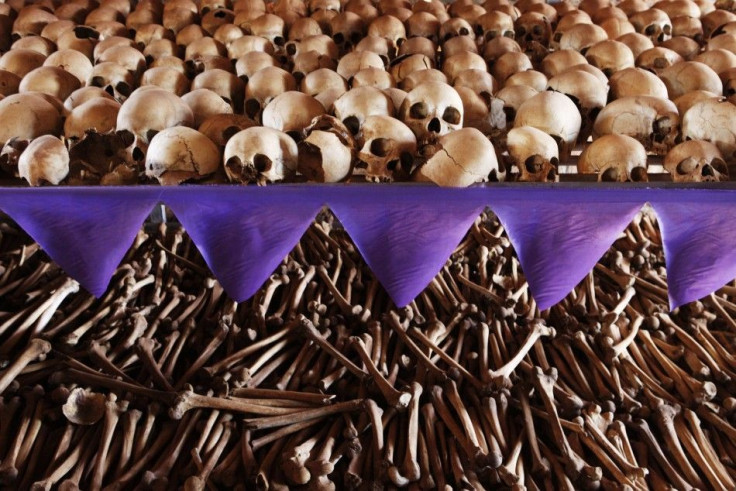Remembering 20 Years of Rwanda Genocide: Rwanda Prepares to Commemorate 800,000 People Killed

Twenty years of being haunted by Rwanda's darkest moment in history, Rwanda prepares to commemorate the 800,000 people killed in the three-month killing spree, leaving orphaned survivors struggling to uplift their lives despite the tragedy that left them scarred for life.
Mudahagora Ernestine is just one of the victims who had been orphaned by the Rwanda Genocide. Source considers Ernestine as the soul survivor in her family of seven, scarred for 20 years with visible injuries on her neck, hands and other parts of her body.
According to history, the term "genocide" emerged after the World War II when the full extent of what the Nazi regime, headed by Adolf Hitler, did to the Jews that live in Europe came into realization.
History states that killing is considered "genocide" when violence is employed with the intention to wipe out the entire group. It was in 1948 that the United Nations officially declared "genocide" as an international crime.
On April 7, 1994, Hutu extremists did the same international crime. Hutu targeted the ethnic group called Tutsi. Source states that the killing lasted for three months, resulting to massive killings that took the lives of at least 800,000 men, women and children.
According to the United Human Rights Council, the assassination of Hutu president Juvénal Habyarimana sparked the genocide. Hutus took aim to the Tutsis, blaming the entire minority ethnic group of shooting the plane carrying the Hutu president.
Without second thoughts, the Hutus devised a plan to destroy the entire Tutsi tribe, including the civilian population, and raped at least half a million women. The said extremity resulted to 20,000 unfortunate children born out of wedlock. Hutu comprised the majority of Rwanda's ethnic groups with 85% while Tutsi was only 14%.
The Tutsis were totally overpowered. Even after 20 years, the tragedy still remains a visible, if not tangible, memory of a time in the Rwandans life where everything was dark and help seemed too far away.
But the Rwandans now have hope. Bouquet of flowers tied with a ribbon showing the message "Genocide Never Again" was pictured in the Kigali Genocide Memorial grounds where eleven mass graves had been established as part of the preparation to commemorate everyone that was killed, Reuters reports.
Aside from the flowers, a banner can also be seen at the Kigali Genocide Memorial that reads "Remembering 20 Years."




















